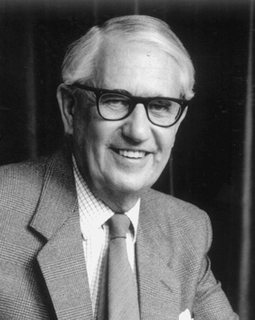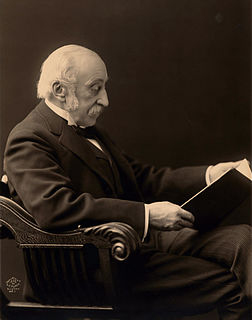Top 411 Franklin Quotes & Sayings - Page 7
Explore popular Franklin quotes.
Last updated on April 21, 2025.
Well, in Washington, this is a very hard time for Eleanor and Franklin. This is when Lucy Mercer first appears. And Lucy Mercer is Eleanor Roosevelt's own secretary. Very beautiful young woman, not unlike Eleanor Roosevelt: tall, blonde, thick haired. And FDR is having an affair with her, which Eleanor Roosevelt finds out when FDR returns from Europe in 1918 with the famous flu of 1918.
[Maxim] Litvinov signed his letter not in private capacity but as representative of the state, just as did President [Franklin] Roosevelt. Their agreement represents an agrement between two states. Signing this agreement both Litvinov and President Roosevelt as the
representatives of two states have in mind the activities of the agents of those states who should not and will not interfere in each other's internal affairs.
I think the important thing to understand first and foremost about Michael Jackson is that he was the international emblem of the African American blues spiritual impulse that goes back through slavery - Jim Crow, Jane Crow, up to the present moment, through a Louis Armstrong, through a Ma Rainey, through a Bessie Smith, all the way to John Coltrane, Aretha Franklin and Nina Simone.
A President Roosevelt comes only once in a century. I believe God knew and does know of the need of the world at this moment. I don't believe President Roosevelt is an accident in time, or that it is an accident that he is President for a third time. I believe that Franklin D. Roosevelt truly is the voice of liberty in the world.
And of course, FDR was very charming. At 6'2", he was tall enough to be her beau, and they made a beautiful couple. And she could encourage him. His mother also encouraged him. So this notion of a woman with ideas of her own and a spirit of her own and a style of her own was very congenial to Franklin. And he loved her. And their romance was a very dear and true and deep romance.
We believe there should be a huge area between everything you should do and everything you can do without getting into legal trouble. I don't think you should come anywhere near that line. We don't deserve much credit for this. It helps us make more money. I'd like to believe that we'd behave well even if it didn't work. But more often, we've made extra money from doing the right thing. Ben Franklin said I'm not moral because of it's the right thing to do - but because it's the best policy.
I think there will be some people who think I did a great job, some people who will think, 'Hey, for a guy who did this for his first time, he didn't do too bad,' and some people will be like, 'Rich Franklin sucks.' It doesn't matter what you do, you will always have people on every side of that spectrum, so I would imagine for me it wouldn't be any different.
You've probably heard about the theory of steam-engine time - that even after the steam engine had been invented, it had to wait until people were ready to make use of it. The same thing happens in literary circles. The truth is, I'm not terribly interested in Victorian times; I'm interested in Victorian writers. I'm interested in most eras of history, but not the Victorian Era especially. I was interested in the John Franklin Expedition. I was interested in these last five weird years of Dickens' life. And I just have to take the age that comes with all that when I write about it.
And again it snowed, and again the sun came out. In the mornings on the way to the station Franklin counted the new snowmen that had sprung up mysteriously overnight or the old ones that had been stricken with disease and lay cracked apart-a head here, a broken body and three lumps of coal there-and one day he looked up from a piece of snow-colored rice paper and knew he was done. It was as simple as that: you bent over your work night after night, and one day you were done. Snow still lay in dirty streaks on the ground but clusters of yellow-green flowers hung from the sugar maples.
I know some say, let us have good laws, and no matter for the men that execute them: but let them consider, that though good laws do well, good men do better: for good laws may want good men, and be abolished or evaded [invaded in Franklin's print] by ill men; but good men will never want good laws, nor suffer ill ones.
Why, just a couple of economic seasons ago, was idle cash considered an indication of bad management or lazy management? Because it meant that management didn't have this money out at work ... Now look. Presto! A new fashion! Cash is back in! Denigrating liquidity has dropped quicker than hemlines. A management is now saluted if it has some cash, some liquidity, doesn't have to go to the money market at huge interest rates to get the wherewithal to keep going and growing. Along with Ben Franklin, my father and your father would understand and applaud this new economic fashion.
Being a progressive himself, Franklin Roosevelt was talking about the fact that we should provide jobs for everyone who wants one. People do have a right to live in decent housing. They do have a right to education. FDR was preaching this gospel in the '30s, and Dr. Martin Luther King did the same thing in the 1960s with the Poor People's March on Washington. Folks in this country have these rights and it's the job of this country to answer this call.
Holocausts do not amaze me. Rapes and child slavery do not amaze me. And Franklin, I know you feel otherwise, but Kevin does not amaze me. I am amazed when I drop a glove in the street and a teenager runs two blocks to return it. I am amazed when a checkout girl flashes me a wide smile with my change, though my own face had been a mask of expedience. Lost wallets posted to their owners, strangers who furnish meticulous directions, neighbors who water each other's houseplants - these things amaze me.
To finish building the free society dreamed of by Washington, Franklin, and Jefferson, we must draw upon the resources of the enlightened imagination, which can be systematically developed by the spiritual sciences of India and Tibet. We have not yet tamed our own demons of racism, nationalism, sexism, and materialism. We have not yet made peace with a land we took by force and have only partly paid for. We are a teeming conglomeration of people from different tribes who have yet to embrace fully the humanness in one another. And none of us can be really free until all of us are.
As a writer, politician, scientist, and businessman, [Ben] Franklin had few equals among the educated of his day-though he left school at ten. (...)Boys like Andrew Carnegie who begged his mother not to send him to school and was well on his way to immortality and fortune at the age of thirteen, would be referred today for psychological counseling; Thomas Edison would find himself in Special Ed until his peculiar genius had been sufficiently tamed.
I don't think she ever had a single initiative at the United Nations that was not previously [vetted] by the people at the State Department, approved of, and authorized. She did manage to get around the world an awful lot, and find other parts of her vast slum project that needed repair. But I don't think that that was the main point. The main point was that she, after all, connoted Franklin Roosevelt, who by then was long dead, and had a certain prestige and power on that account.
The crisis [the Great Depression] discovered a great man in Franklin Roosevelt...None too soon he has carried America forward to the second stage of democratic realization. His New Deal involves such collective controls of the national business that it would be absurd to call it anything but socialism, were it not for a prejudice lingering on from the old individualist days against that word...Both Roosevelt and Stalin were attempting to produce a huge, modern, scientifically organized, socialist state, the one out of a warning crisis and the other out of a chaos.
Which is more worthwhile earning: a large fortune or the esteem and gratitude of the nation? This question is prompted anew by the death of ex-Secretary of the Interior [Franklin K.] Lane. He remained in public service, doing most noble work, until his means became absolutely exhausted, and he died before having had the opportunity to reaccumulate any bank account.... He died leaving no estate whatsoever. Is what he did leave more to be desired, more to be coveted, than a fortune reaching into six or seven figures?
When Arthur Schlesinger Sr. pioneered the 'presidential greatness poll' in 1948, the top five were Lincoln, Washington, Franklin D. Roosevelt, Woodrow Wilson, and Jefferson. Only Wilson appears to be seriously fading, probably because his support for the World War I-era Sedition Act now seems outrageous; in this analogy, Woodrow is like the Doors and the Sedition Act is Oliver Stone.
That was the reason why very few people fleeing the rise of fascism in Europe, especially in Germany, could get to the United States. And there were famous incidents like with the MS Saint Louis, which brought a lot of immigrants, mostly Jewish, from Europe. It reached Cuba, with people expecting to be admitted to the United States from there. But the administration of Franklin D. Roosevelt wouldn't allow them in and they had to go back to Europe where many of them died in concentration camps.
Of the six men who have done most to make America the wonder and the joy she is to all of us, not one could be the citizen of a government so constituted; for Washington and Franklin and Jefferson, certainly the three mightiest leaders in our early history, were heretics in their day, Deists, as men called them; and Garrison and Lincoln and Sumner, certainly the three mightiest in these later times, would all be disfranchised by the proposed amendment. Lincoln could not have taken the oath of office had such a clause been in the Constitution.
There never was a good war," said Franklin. "There have indeed been many wars in which a good man must take part, and take part with grave gladness to die if need be, a willing sacrifice, thankful to give life for what is dearer than life, and happy that even by death in war he is serving the cause of peace. But if a war be undertaken for the most righteous end, before the resources of peace have been tried and proved vain to secure it, that war has no defense, it is a national crime.
My recurring nightmare is that someday I will be faced with a panel: Franklin Roosevelt, John Kennedy and Lyndon Johnson all of whom will be telling me everything I got wrong about them. I know that Johnson's out there saying, 'Why is it that what you wrote about the Kennedys is twice as long as the book you wrote about me?
I was with Miles Davisfor a couple of years as his bass player, and it was a beautiful experience. After two years I said to him, "Listen, man, I want to leave your band." He goes, "Why?" I said, "Because I want to develop not just as a bass player, but I want to get more into composition, into producing, and I'm working with Aretha Franklin and Luther Vandross and all these guys, and I want to really see how much I can grow and develop." He actually gave me his blessing.
My recurring nightmare is that someday I will be faced with a panel: Franklin Roosevelt, John Kennedy and Lyndon Johnson all of whom will be telling me everything I got wrong about them. I know that Johnson's out there saying, 'Why is it that what you wrote about the Kennedys is twice as long as the book you wrote about me?'
"We hold these truths to be sacred and undeniable" in a draft of the Declaration of Independence changes it instead into an assertion of rationality. The scientific mind of Franklin drew on the scientific determinism of Isaac Newton and the analytic empiricism of David Hume and Gottfried Leibniz. In what became known as "Hume's Fork" the latters' theory distinguished between synthetic truths that describe matters of fact, and analytic truths that are self-evident by virtue of reason and definition.
Find a beautiful piece of art. If you fall in love with Van Gogh or Matisse or John Oliver Killens, or if you fall love with the music of Coltrane, the music of Aretha Franklin, or the music of Chopin - find some beautiful art and admire it, and realize that that was created by human beings just like you, no more human, no less.
I'm very glad my mother didn't let me quit piano lessons at age 10. She said I wasn't old enough or good enough to make that decision, and she was right. I remember at the time I was shocked. I did not like that my mother said those things to me. But when I got a chance to play with Yo-Yo Ma or more recently with Aretha Franklin, I thought, I'm really glad she said what she did.
Tentatively I stood a great lump of wood on the chopping block and bought the axe down on it. It flew into two perfect halves. Such was my elation that I ran inside, put on our ancient cracked record of Aretha Franklin singing Respect and danced all by myself for half an hour in our living room, without inhibition, almost crying with jubilation – not just about the wood, but because I could live competently some of the time, and because that day I liked myself.
I just think, realistically, there's a lot of room outside the Trump populist right and the Bernie-Sanders-Elizabeth-Warren populist left. There are a lot of us who believe in open trade, open borders, a dynamic forward-looking economy, not a nostalgic economy, but do want to provide a significant level of social service or sort of economic Milton Friedman foreign policy, Ronald Reagan domestic policy, Franklin Roosevelt. And there's a lot of room in the center.
It is impossible not to feel stirred at the thought of the emotions of man at certain historic moments of adventure and discovery - Columbus when he first saw the Western shore, Pizarro when he stared at the Pacific Ocean, Franklin when the electric spark came from the string of his kite, Galileo when he first turned his telescope to the heavens. Such moments are also granted to students in the abstract regions of thought, and high among them must be placed the morning when Descartes lay in bed and invented the method of co-ordinate geometry.
Activist Supreme Courts are not new. The Dred Scott decision in 1856, imposing slavery in free territories; the Plessy decision in 1896, imposing segregation on a private railroad company; the Korematsu decision in 1944, upholding Franklin Roosevelt’s internment of American citizens, mostly Japanese Americans; and the Roe decision in 1973, imposing abortion on the entire nation; are examples of the consequences of activist Courts and justices.
Obama's Marxist mentors - Franklin Marshall Davis, Saul Alinsky and Bill Ayers - also understood that you don't build an army of street organizers or a recurring voting constituency by teaching people of the streets to fish. When you 'share wealth around' you make the distributees dependent on your next handout - beholden to your largesse with other's people's money and personally worse off in every respect.
There are many influences in my music, not only blues. R&B, Motown, gospel, old timey, jazz, even classical are all part of what I do. I started with classical, then country, then blues, and after that I started listening heavily to Motown and gospel. My earliest efforts as a songwriter were soul. Aretha Franklin, Curtis Mayfield, Wilson Pickett, Gladys Knight, James Brown, Otis Redding, Marvin Gaye and Fontella Bass are just a few of the names that come to mind as the God's of soul and Motown.
Capitalism can be alright, I mean Karl Marx didn't live to see what Roosevelt did with that Depression. He pulled everybody out of that Depression and everybody hated Franklin Roosevelt. He got into office four times. One after the other, with everybody saying, he can't get in again. Everybody voted for Roosevelt four times and he did a hell of a lot.
I use a lot of specific places in my songs - traditionally, a lot from Minneapolis and St. Paul, where I grew up. Most people, especially when you get into international touring, have not been there. So you say, "Well, isn't it risky to talk about the corner of Franklin Avenue and Lyndale?" If you do it right, someone should say, "God, I know a corner like that." Offering specific details to describe something universal.
It is difficult to find a reputable American historian who will acknowledge the crude fact that a Franklin Roosevelt, say, wanted to be President merely to wield power, to be famed and to be feared. To learn this simple fact one must wade through a sea of evasions: history as sociology, leaders as teachers, bland benevolence as a motive force, when, finally, power is an end to itself, and the instinctive urge to prevail the most important single human trait, the necessary force without which no city was built, no city destroyed.
There are days when I'm completely obsessed with Kate Bush, and there are days when I'm completely obsessed with the Eurythmics. Then it's Aretha Franklin, then it's Lena Horne, then it's Ella Fitzgerald, then it's John Legend, then it's Michael Jackson. Music, to me, is like food, so I feel like whatever I need that day, I can get from a song.
Lincoln was able to say, you know, "It will make me very unhappy if I lose the presidency, but I'm committed to larger things." If you look at candidates and say this is someone who can be happy to go back to their family or they have larger convictions. Franklin Roosevelt jeopardized his presidency by telling Americans in 1940, "We might have to fight Hitler." He loved being president, but he loved defending freedom more.
Well, Mr Obama inherited probably the biggest inventory of problems, certainly foreign policy problems, than any American president ever has. I think the entire inventory of problems that he inherited is probably as big overall as any president, certainly since Franklin Roosevelt and maybe, in some cases, worse.
I think the most important thing I wanted to say at various times to Franklin and Eleanor Roosevelt was that it seemed so sad to me that - I really believe they loved each other and had a great deal of affection - but because of that early hurt in their marriage, there was a certain kind of distance from then on, until their deaths actually. So at times, I just wanted to push them together and say, "Come on, you guys! I know you love each other. This is crazy!"
Barack Obama did get a higher percentage of the vote than anybody has in this country in 20 years. I mean, it was a resounding victory. I mean, whether his core constituency was 20 percent or what, his electoral constituency, which is how we measure elections, was 53 percent, which was, you know, historically high, the highest of any Democrat, other than Franklin Roosevelt and Lyndon Johnson.
"Stupid English."
"English isn't stupid," I say.
"Well, my English teacher is." He makes a face. "Mr. Franklin assigned an essay about our favorite subject, and I wanted to write about lunch, but he won't let me."
"Why not?"
"He says lunch isn't a subject."
I glance at him. "It isn't."
"Well," Jacob says, "it's not a predicate, either. Shouldn't he know that?"
The scientists from Franklin to Morse were clear thinkers and did not produce erroneous theories. The scientists of today think deeply instead of clearly. One must be sane to think clearly, but one can think deeply and be quite insane. Today's scientists have substituted mathematics for experiments, and they wander off through equation after equation, and eventually build a structure which has no relation to reality.
Stevenson had noble ideas--as did the young Franklin for that matter. But Stevenson felt that the way to implement them was to present himself as a thoughtful idealist and wait for the world to flock to him. He considered it below him, or wrong, to scramble out among the people and ask them what they wanted. Roosevelt grappled voters to him. Stevenson shied off from them. Some thought him too pure to desire power, though he showed ambition when it mattered.
You know what we pride ourselves on that - although I wouldn't mind if my backside was a little smaller. But look at the original divas... take Aretha Franklin for example - I've seen her live in the States and she was mammoth, but she had that crowd under control and they doted on every movement she made! We're not little midgets but the music industry is not about that, it's about loving the music and respecting what you do.
I would always argue to my students that Canada is not necessarily or inherently a left-wing country, and the United States is not necessarily the citadel of right-wing liberty. The obvious case there is Franklin Roosevelt's New Deal, which made the Americans much further left than the Canadians at the time, and Americans coming to Canada found us backward, conservative, and out of tune with the kind of free-spirited liberalism that there was in the States. Then things reversed, with medicare the prime example.
We are redeemed one man at a time. There is no family pass ticket or park hopping pass to life. One ticket - one at a time. Man doesn't vanquish hatred or bigotry. The target keeps moving. From the blacks to the Irish; atheists to Christians. But as always there are a few leaders: Ben Franklin, John Quincy Adams, Harriet Beecher Stowe, Abraham Lincoln, Fredrick Douglas, Booker T Washington, Ghandi and Martin Luther King. They know that the march toward freedom never ends, man must be ever vigilant and pray less with his lips and more with his legs.
Puns are little "plays on words" that a certain breed of person loves to spring on you and then look at you in a certain self-satisfied way to indicate that he thinks that you must think that he is by far the cleverest person on Earth now that Benjamin Franklin is dead, when in fact what you are thinking is that if this person ever ends up in a lifeboat, the other passengers will hurl him overboard by the end of the first day even if they have plenty of food and water.















































